thyme is a traditional medicinal herb that belongs to the labial family. It grows as a shrub or subshrub. Usable parts of the strongly scented thyme are the small leaves that can be easily peeled off the woody stems and the pale purple flowers.
Occurrence & cultivation of thyme?

In total, the botanist distinguishes 214 types of thyme. The best known is the real thyme. In addition to medicinal use, the aromatic, aromatic thyme is also used in the kitchen as a herb. Provencal cuisine is inconceivable without thyme. Thyme has been known in medicine as a medicinal herb and remedy for centuries.
Thyme is mainly native to the Mediterranean area. It grows in southern Europe and north Africa. Some species are also native to Central Europe. Real thyme does not grow wild in Germany. But it is grown and cultivated in herb gardens.
Effect & application
thyme has many ingredients. It is not for nothing that thyme is called a “jack of all trades”. He is one of the wonder plants on our earth. The most important is its essential oil with the main active ingredients phenols, carvacrol and thymol. Flowers and leaves also contain tannins and flavonoids.
The healing properties of thyme were already known to the ancient Greeks. With the essential oils, thyme can remove stubborn mucus from the airways. When coughing with sputum, thyme can loosen the phlegm and the patient can cough it up better. Thyme also has a beneficial effect on healing in acute bronchitis.
Thyme also has anti-inflammatory and antibacterial properties. This is why thyme is also found in solutions that a doctor prescribes for inflammation of the lining of the mouth or throat.
Thyme is also used for skin diseases such as skin lichen. This is where the antibacterial effect of thyme comes into play again. Thyme also relieves itching.
Thyme is also known in the kitchen and in medicine for its digestive effects. Meat or sausage in particular is often more digestible with thyme.
As diverse as the effects of thyme are, so are the forms in which thyme can be administered. For respiratory diseases there are medicines with the active ingredients of thyme in the form of juices, in the form of drops or as mouthwash solutions. Thyme can also be used as a tea, as a tincture or as an addition to a steam bath.
Significance for health, treatment & prevention
The meaning of thyme for health, for the prevention of diseases and in the treatment of diseases is almost immeasurable.
Thyme is one of the most important medicinal herbs in medicine. In addition to the known effects on respiratory and skin diseases, researchers are investigating many other effects that thyme may have. Herbalists and alternative practitioners have long known these additional effects of thyme. They also use thyme as a pain reliever, for example. Thyme is one of the most powerful natural antibiotics.
According to other research results, thyme also has a fungicidal effect. This means that the essential oil of thyme can also be used as a room fragrance, for example, and the molecules circulating in the air act against existing bacteria and fungal spores. Researchers are also investigating thyme's antiviral effects. This means that thyme can also be used as a “room spray” in nursing wards against fungal spores and bacteria.
Many of the effects of thyme have not been scientifically tested, but some have been used in practice for centuries.
Fragrance lamps with thyme oils or inhalations with the essential oils of thyme can equally affect the psyche of people. This effect is practically unknown. Thyme has a calming, mood-enhancing and concentration-promoting effect.
As a preventive measure, thyme naturally also helps against colds. This knowledge is not new either and people already knew the preventive effect of thyme several centuries ago. The saying "the next cold will definitely come, but not to those who take thyme ..." is no accident. Three cups of thyme tea sweetened with honey every day prevents colds.
People who often suffer from bad breath can also use thyme preventively. As a toothpaste, thyme provides a spicy, fresh smell.

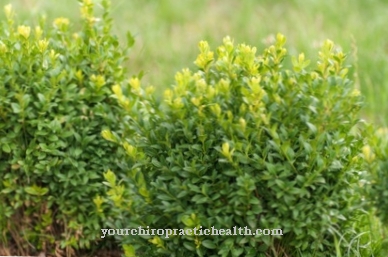
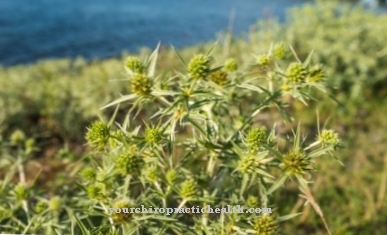
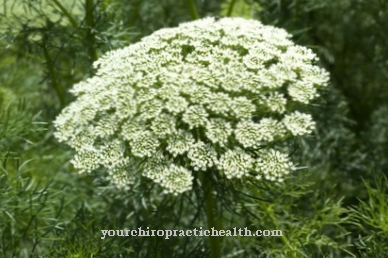
.jpg)
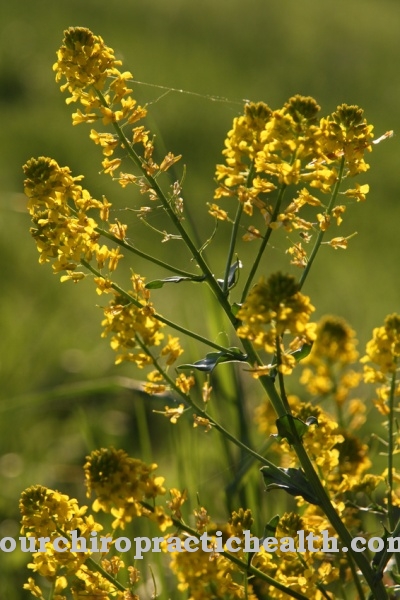
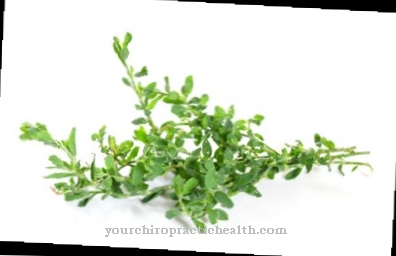

















.jpg)



